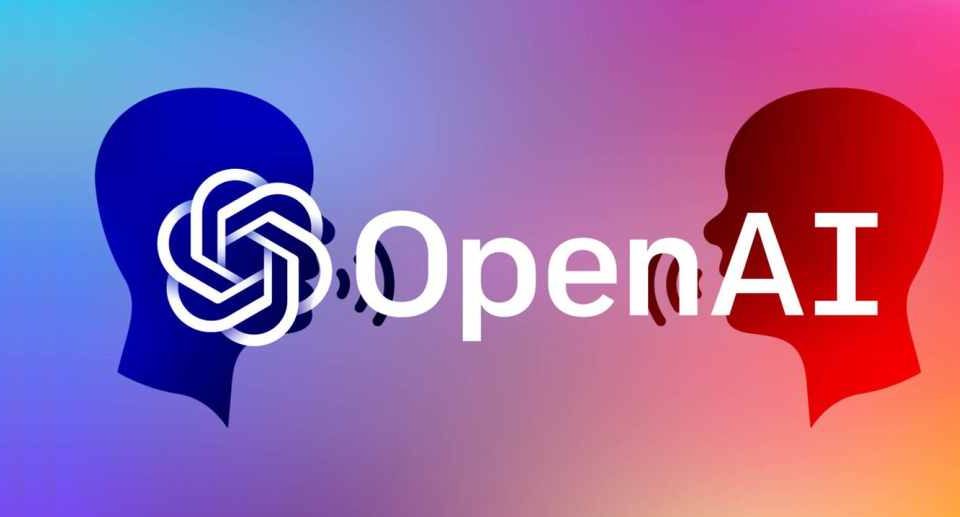FTC Probes OpenAI's ChatGPT: Data Privacy Concerns And Future Implications

Table of Contents
The FTC's Investigation: What's at Stake?
The FTC's investigation into OpenAI's ChatGPT centers on potential violations of consumer protection laws related to the handling of personal data. The stakes are high, not just for OpenAI, but for the entire AI landscape.
Allegations of Data Misuse
The FTC is scrutinizing OpenAI's practices concerning the collection, use, and protection of personal data. Key allegations include:
- Unauthorized Collection of Sensitive Personal Information: Concerns exist that ChatGPT may have collected sensitive personal information without proper consent from users. This could include anything from personally identifiable information (PII) to sensitive health data inadvertently included in user prompts.
- Insufficient Data Breach Safeguards: The investigation is examining whether OpenAI implemented sufficient security measures to prevent data breaches and misuse of collected data. Robust security protocols are paramount in protecting user privacy, especially with the vast amounts of data processed by AI models.
- Lack of Transparency Regarding Data Handling Practices: The FTC is likely investigating whether OpenAI has been sufficiently transparent with its users about its data handling practices. Clear and accessible privacy policies are crucial for building user trust and compliance with data protection regulations.
Potential Penalties and Consequences
OpenAI faces significant potential penalties resulting from this investigation. These could include:
- Substantial Fines: Depending on the severity of any violations, OpenAI could face hefty fines. These penalties could significantly impact the company's financial stability and future investment capabilities.
- Mandated Changes to Data Practices: The FTC could order OpenAI to implement sweeping changes to its data collection, storage, and usage practices. This could involve significant changes to its technology and internal processes.
- Setting a Precedent for Future AI Regulation: The outcome of this investigation will have far-reaching implications for the AI industry as a whole. It could pave the way for stricter data privacy standards and regulations for all AI companies developing and deploying similar technologies. This could lead to increased scrutiny of other large language models (LLMs) and generative AI systems.
Data Privacy Concerns in Generative AI
The inherent nature of generative AI, particularly models like ChatGPT, raises serious data privacy concerns.
Data Collection and Training
ChatGPT's training involves ingesting vast amounts of data scraped from the internet. This data often includes personal information, raising crucial ethical and legal questions.
- Lack of Explicit Consent: A major concern is the lack of explicit consent from individuals whose data was used to train ChatGPT. The scale of data collection makes obtaining informed consent incredibly challenging, presenting a significant ethical dilemma.
- Data Removal Difficulties: Once data is incorporated into a model's training set, removing it entirely is extremely difficult, if not impossible. This raises concerns about the long-term storage and potential reuse of personal information.
- Re-identification Risks: Even anonymized data can be vulnerable to re-identification techniques, potentially compromising the privacy of individuals whose data was used in training.
Bias and Discrimination
Another critical concern is the potential for bias and discrimination in generative AI models.
- Biased Outputs: AI models trained on biased data can reflect and amplify existing societal biases, leading to unfair or discriminatory outputs from ChatGPT.
- Mitigating Bias Challenges: Identifying and mitigating bias in large language models is a complex and ongoing challenge for the AI community.
- Ethical Implications: Deploying biased AI systems can have severe ethical and societal consequences, perpetuating inequalities and harming vulnerable populations.
Future Implications for AI Regulation
The FTC's investigation underscores the need for proactive and comprehensive AI regulation.
The Need for Comprehensive AI Legislation
This situation highlights the urgent need for lawmakers to create comprehensive legislation specifically addressing the development and deployment of AI technologies. This legislation should focus on:
- Specific AI Data Privacy Regulations: Dedicated regulations are needed to address the unique data privacy challenges presented by AI, going beyond existing data protection laws.
- Balancing Innovation and Consumer Protection: Regulation must strike a balance between fostering innovation and protecting consumer rights and data privacy.
- International Collaboration: Global cooperation is essential to establish consistent and effective AI governance frameworks.
Impact on the AI Industry
The FTC's investigation will inevitably have a profound impact on the AI industry.
- Increased Investment in Security: AI companies will likely invest heavily in enhancing data security and privacy technologies to meet future regulatory requirements.
- Changes to Development Practices: AI development practices will likely shift to prioritize data privacy and ethical considerations from the outset of project design.
- Increased Legal and Compliance Costs: Companies will face increased legal and compliance burdens, potentially slowing down innovation and raising development costs.
Conclusion
The FTC's investigation into OpenAI's ChatGPT is a watershed moment for AI and data privacy. The concerns regarding data misuse, bias, and the lack of comprehensive regulation demand immediate attention. This investigation's outcome will likely shape how generative AI is developed and deployed, impacting not only OpenAI but the entire AI industry. Staying informed about the FTC's findings and future regulations concerning ChatGPT and similar AI technologies is critical for everyone involved. Understanding the complexities of ChatGPT data privacy is essential for navigating this rapidly evolving technological landscape.

Featured Posts
-
 Chris Kaba Panorama Police Watchdog Challenges Bbc Broadcast To Ofcom
Apr 30, 2025
Chris Kaba Panorama Police Watchdog Challenges Bbc Broadcast To Ofcom
Apr 30, 2025 -
 Nevsehir De Meydana Gelen Kayma Kazasi Yaralanma Ve Oenlemler
Apr 30, 2025
Nevsehir De Meydana Gelen Kayma Kazasi Yaralanma Ve Oenlemler
Apr 30, 2025 -
 000 Euro Di Risarcimento Per Becciu La Decisione Del Tribunale
Apr 30, 2025
000 Euro Di Risarcimento Per Becciu La Decisione Del Tribunale
Apr 30, 2025 -
 Il Caso Becciu Preghiere E Riflessioni Sulle Sue Dimissioni
Apr 30, 2025
Il Caso Becciu Preghiere E Riflessioni Sulle Sue Dimissioni
Apr 30, 2025 -
 2025
Apr 30, 2025
2025
Apr 30, 2025
